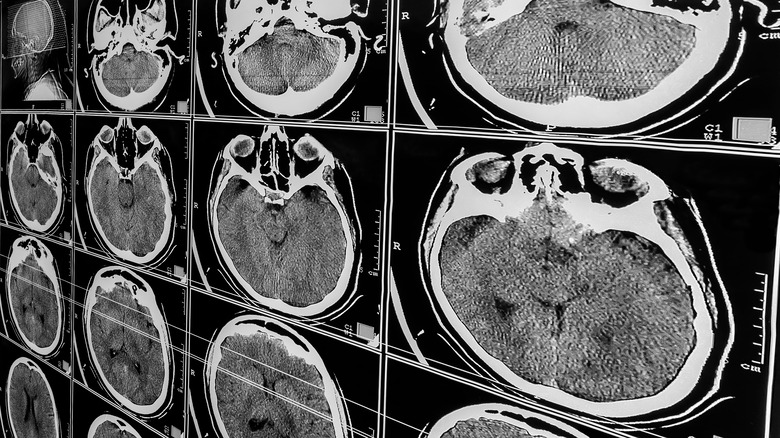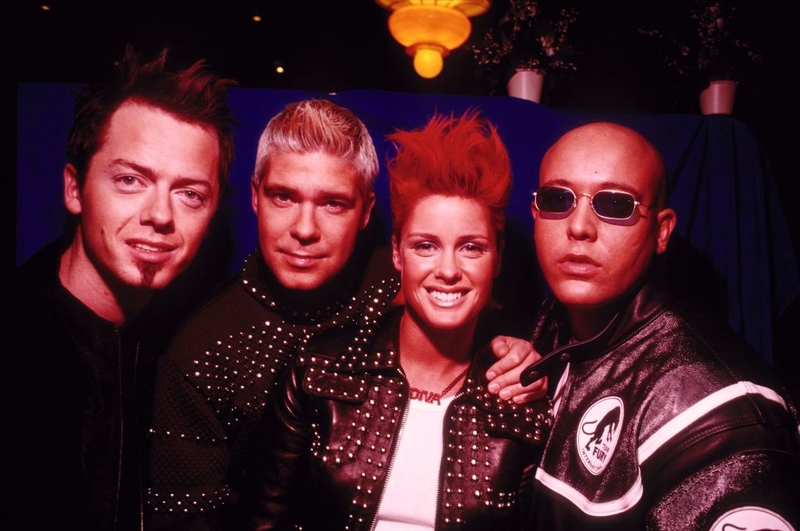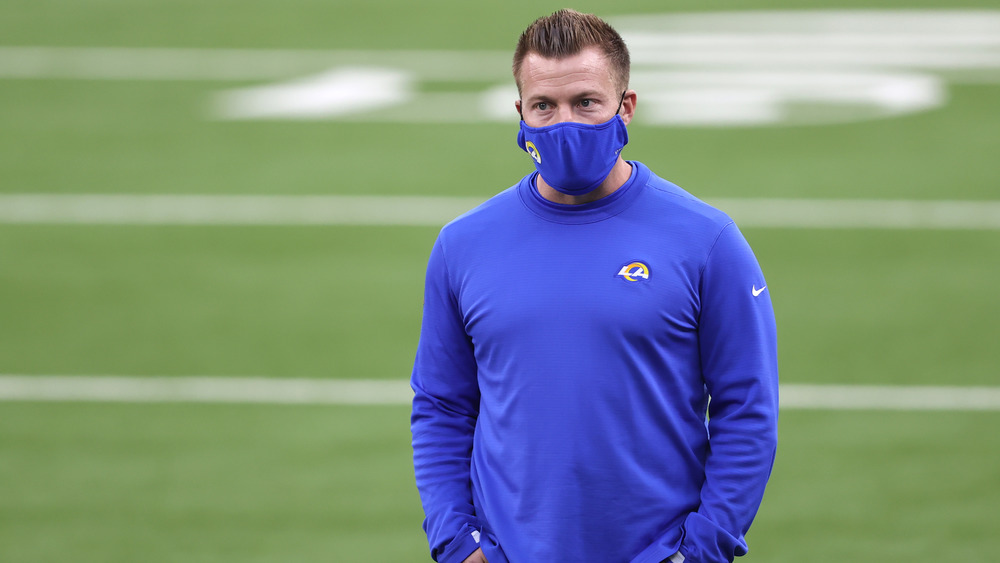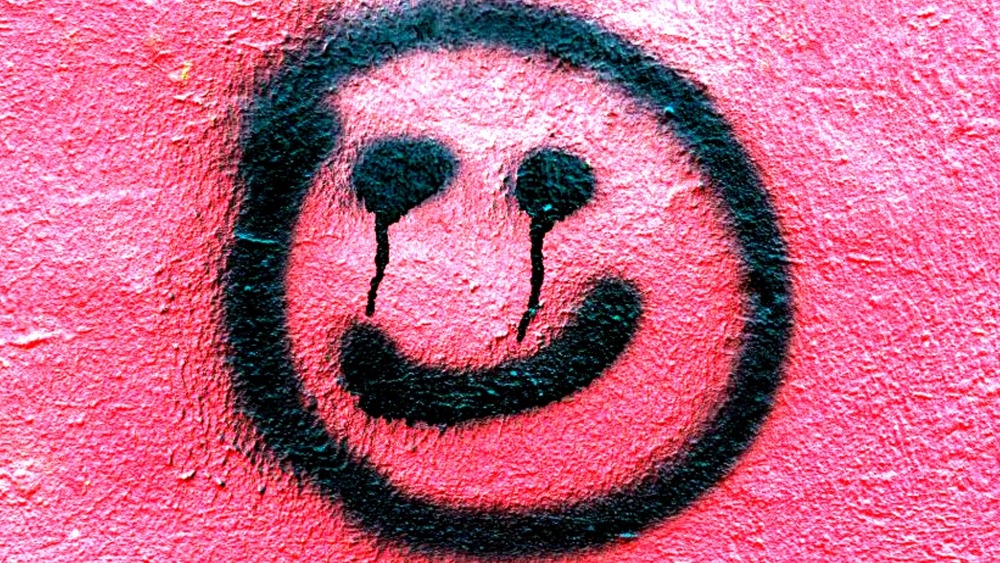
These Are The Long-Term Effects Of Being Knocked Out
We’ve all seen it in the movies: The bad guy sneaks up behind the good guy, whacks him with the butt of a rifle, and knocks him out cold. He comes to, maybe an hour later, tied to a chair in some sort of elaborate death-machine. A death-machine, of course, that he escapes in the nick of time, using his wits.
The lesson is clear: Knocking someone out is a great way to take someone alive if you don’t feel like killing them (and is also a terrible idea if you’re a supervillain). Right? Actually, according to Brain Facts, if someone is unconscious for more than a minute, there’s an extremely good chance they’ve suffered a severe traumatic brain injury, otherwise known as a concussion. (While a concussion only rarely results in unconsciousness, unconsciousness almost always implies a concussion.) In the short term, a concussion can result in trouble concentrating, memory problems, and sensitivity to light and noise (via Brain Forest), but an estimated 80–85% of concussion victims make a full recovery in two to three weeks.
If you’re one of the unlucky ones, though? Well…
Post-concussive syndrome: fatigue, insomnia, loss of memory — and possibly dementia
Surprisingly, there’s been no observed correlation between a concussion’s severity and its sufferer’s chances of contracting what’s called “post-concussive syndrome.” If you’re one of the unlucky 15–20% who don’t recover right away, though, your symptoms can persist for weeks or even months after your injury — symptoms including chronic headaches, disorientation, ringing in the ears, anxiety, irritability, insomnia, and fatigue (via Brain Forest).
If you’re one of the really unlucky ones, though, your brain could simply start deteriorating later in life, even if you haven’t had any symptoms for years or decades. According to a study in Science, even injuries that leave no brain damage visible on an MRI scan can lead to debilitating symptoms as the sufferer ages, including impairments in judgment, learning, memory, and emotions. This sort of long-term, irreparable deterioration is why more than 4,500 retired football players sued the NFL early in the 2010s over the dementia, depression, and Alzheimer’s their careers had allegedly caused them. (They settled out of court.)
If you suffer a blow to the head, experts say the best way to avoid medium- and long-term consequences is to immediately seek medical attention and take it easy for a few days if you’re showing signs of a concussion (the Centers for Disease Control and Prevention has posted a helpful rubric). In other words, “Just shake it off and get back in the game” is about the worst possible advice, assuming you want to keep your brain intact.

Why Easter Island Has No Trees

The Reason Jehovah's Witnesses Don't Celebrate Birthdays
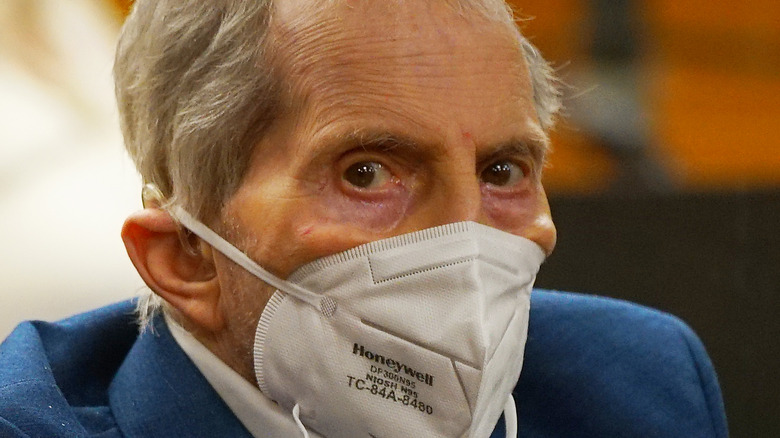
Susan Berman: Disturbing Details Found In Robert Durst's Victim's Autopsy Report

How William Penn Played A Role In Pennsylvania's First Witch Hunt

Here's How The President's Nuclear Football Really Works

The Tragic Real-Life Story Of Simone Biles

This Body Part Of Albert Einstein Was Hijacked After He Died

This Was Huey Lewis' Biggest Regret Of His Career

Why Historians Hate People Upscaling Film

The Bizarre Job Dave Grohl Had Before Music
